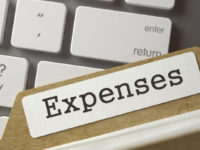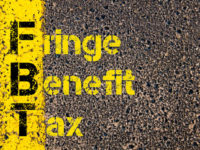There are several small-business tax misconceptions that we hope to shed light on in this article.
I’m not really in business
Many people try to argue that their commercial activity is a hobby, not a business. Whether you are driving for a ride-sharing company, baking cakes for the local market or making quilts to sell at a local shop, you need to seriously think about whether your activity has gone beyond being a mere hobby. If you’re making a commercial return on your activity – in particular, if the whole reason for your activity is to make money – the chances are you’re in business, no matter how much pleasure you take from your activity. That means your income is taxable.
I can treat the company’s money as my own
Many small companies get caught out by the so-called “deemed dividend” rules. Under tax law, loans and advances to private company shareholders or their associates are deemed to be taxable unfranked dividends for the shareholders. The intention of these rules is to stop the profits of private companies being distributed to shareholders as tax-free “loans.”
So, if you find yourself borrowing money out of the company of which you’re a shareholder, try to ensure those borrowings are repaid by the time the company’s tax return for the year is due. If that isn’t possible, declare a dividend and treat the amount as income, in which case, the dividend would be franked if applicable. Alternatively, enter into a complying loan agreement, complete with commercial interest and capital payments and a defined loan period.
Look out too for the tax consequences of the private use of company assets for less than market value, because this can also be caught by the deemed dividend rules. The amount of the deemed dividend is equivalent to the arm’s length price that would have been paid for the use of the assets, less any amount actually paid for the use. To get round that, it’s worth considering transferring the asset to the shareholder in lieu of a cash dividend, a so-called ‘in-specie’ dividend. Whether that’s cost-effective will depend on what the market value of the asset actually is. Alternatively, if the shareholder has previously lent money to the company, the asset could be transferred to the shareholder as a repayment of that loan, subject to valuation.
I don’t need to worry about GST
If the turnover from your business is greater than $75,000, you need to register for and account for GST on your sales. If you are a taxi or Uber driver, you need to account for GST on every cent of your fares, right from the first dollar.
The ATO won’t know about my sales if I only accept cash
Thousands of small businesses have relied on that old chestnut to keep their taxable income low. It doesn’t work. The ATO has sophisticated data-matching and analytical tools which can tell them exactly what your business should be turning over. If your business doesn’t meet those benchmarks – perhaps because you’ve not recorded all your sales – expect a visit from the taxman.
Mark Chapman, Tax Communication Director, H&R Block
















